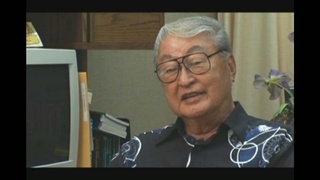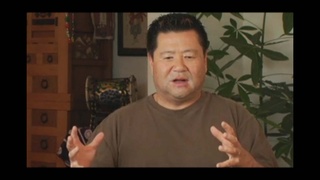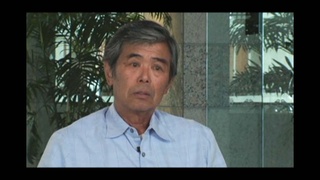Interviews
Growing up Japanese in Hawaii
I think that’s the thing, we were so insulated in Hawaii, and just as a culture, I mean Asians comprise like 2/3rds of the population, so you never felt uncomfortable. In fact I think Hawaii is the only place where the minorities feel superior to the Caucasians. And I mean Superior with a capital S, maybe foolishly because if you measure it in terms of economics, just pure dollars, the Caucasians are probably still wealthier per capita. But in terms of feeling discriminated against, certainly not in Hawaii. And that’s why I always felt that when I met Japanese Americans on the mainland, they were still holding back, they still felt like a minority, whereas people from Hawaii act too brash and too cocky. But that’s the way your attitude is because you grow up in an Asian majority situation, which doesn’t exist anywhere else.
There are people on the mainland who say, oh we’re colorblind. Doesn’t matter what color or race you are, we look at people as being equal. And I go, you know that’s… we’re still way shorter of where it should be. I said you should recognize all colors. You should appreciate all colors. And in Hawaii we all joke about other people’s ethnicity. I mean full on jokes, hardcore jokes, and we all laugh about it. Until you get to the point where you can laugh about your ethnicity, I don’t think you’re there. People just take things too personally. And colorblind is not what you want, it’s color appreciative is what you want. That’s the thing about Hawaii.
Date: April 25, 2018
Location: California, US
Interviewer: John Esaki
Contributed by: Watase Media Arts Center, Japanese American National Museum
Explore More Videos



Starting a medical program in Hawai‘i
(b.1925) Sansei, cardiovascular surgeon.




Victory Corps Work during World War II
(1925 - 2018) Nisei educator from Hawai‘i


Advantages of being Nikkei (Spanish)
(b. 1950) Nisei Chilean, Businessman


Childhood shame for being Nikkei in Enumclaw, Washington
Judge, only Japanese American to serve on CWRIC.

On the Impact of the Camp Experience
(b. 1942) The first Asian American woman judge

Thoughts on the term, "Nikkei"
(b. 1949) Musician and arts educator and adminstrator.


Post-redress future of Japanese Americans
Judge, only Japanese American to serve on CWRIC.
